University of Otago
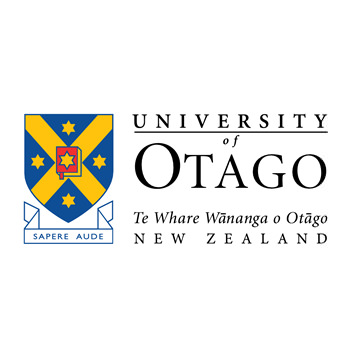
Founded: 1869
Address: 362 Leith Street - Dunedin, New Zealand
Phone: +64 3 4797000
Address: 362 Leith Street - Dunedin, New Zealand
Phone: +64 3 4797000
Here you find out University of Otago complete information about fees, location, degree University of Otago offers, number, website, and much more. University of Otago is a leading university in Dunedin - New Zealand.
You can also find out jobs at University of Otago for students, teachers, and professors. We also update the database for an internship at University of Otago for students.
Here, at Otago, you will have unprecedented opportunities. You will be taught by international experts in their fields; you will gain a world-class qualification, and you will be able to contribute to ground-breaking research. The student experience at Otago is exceptional. You will join a diverse population of well over 20,000 students from around New Zealand and more than 100 nations around t...he world. Importantly, you will have the opportunity to truly define yourself and choose your own direction in life. Tens of thousands of Otago graduates now live in all corners of the globe, many contributing to law, health, science, business and Government. Many of New Zealand’s most renowned artists, novelists, poets and leaders also received their start at Otago.
At the University of Otago, you will have the option to study Science, Health Sciences, Humanities and Commerce. Most of you will study at the main Dunedin campus and live in one of the 15 well-appointed and friendly residential colleges, or in one of the many character-filled flats in surrounding streets. On your back doorstep you will find lecture theatres equipped with the latest technology, our award-winning library, superb study spaces, and fantastic sporting amenities, including a world-class covered stadium. Dunedin is the only true university city in New Zealand and a vibrant student community surrounds the academic hub.
We strongly encourage students to undertake postgraduate study at Otago; we have a higher proportion of PhD students than any other university in New Zealand. We also have health sciences campuses in Christchurch and Wellington, a centre in Auckland, and a small campus for the College of Education in Invercargill. We have partner universities around the world and we foster numerous student exchanges. Our researchers frequently collaborate with experts in other countries and a large proportion of our research can be brought to bear on issues facing New Zealand and other parts of the world. We work in close partnership with Ngāi Tahu, the Māori people of the South Island, and we enjoy strong links with other iwi.
The University of Otago, founded in 1869 by an ordinance of the Otago Provincial Council, is New Zealand’s oldest university. The new University was given 100,000 acres of pastoral land as an endowment and authorised to grant degrees in Arts, Medicine, Law and Music.
The University opened in July 1871 with a staff of just three Professors, one to teach Classics and English Language and Literature, another having responsibility for Mathematics and Natural Philosophy, and the third to cover Mental and Moral Philosophy and Political Economy. The following year a Professor of Natural Science joined the staff. With a further endowment provided in 1872, the syllabus was widened and new lectureships established: lectures in Law started in 1873, and in 1875 courses began in Medicine. Lectures in Mining were given from 1872, and in 1878 a School of Mines was established.
The University was originally housed in a building (later the Stock Exchange) on the site of John Wickliffe House in Princes Street but it moved to its present site with the completion of the northern parts of the Clocktower and Geology buildings in 1878 and 1879.
The School of Dentistry was founded in 1907 and the School of Home Science (later Consumer and Applied Sciences) in 1911. Teaching in Accountancy and Commerce subjects began in 1912. Various new chairs and lectureships were established in the years between the two world wars, and in 1946 teaching began in the Faculty of Theology. The School of Physical Education was opened in 1947.
A federal University of New Zealand was established by statute in 1870 and became the examining and degree-granting body for all New Zealand university institutions until 1961. The University of Otago had conferred just one Bachelor of Arts degree, on Mr Alexander Watt Williamson, when in 1874 it became an affiliated college of the University of New Zealand.
In 1961 the University of New Zealand was disestablished, and the power to confer degrees was restored to the University of Otago by the University of Otago Amendment Act 1961.
Since 1961, when its roll was about 3,000, the University has expanded considerably (in 2016 there were over 20,000 students enrolled) and has broadened its range of qualifications to include undergraduate programmes in Surveying, Pharmacy, Medical Laboratory Science, Teacher Education, Physiotherapy, Applied Science, Dental Technology, Radiation Therapy, Dental Hygiene and Dental Therapy (now combined in an Oral Health programme), Biomedical Sciences, Social Work, and Performing Arts, as well as specialised postgraduate programmes in a variety of disciplines.
Although the University’s main campus is in Dunedin, it also has Health Sciences campuses in Christchurch (University of Otago, Christchurch) and Wellington (University of Otago, Wellington) (established in 1972 and 1977 respectively), an information and teaching centre in central Auckland (1996), and an information office in Wellington (2001).
The supreme governing body of the University is the Council, presided over by the Chancellor. When it was first established its members held office for life. Its constitution was progressively amended in 1891, 1911 and 1946 to provide for the representation of certain local bodies and educational groups, the graduates, the student body and non-professorial staff. The present structure of the Council was laid down in the Education Amendment Act 2015.
The Council is advised on academic matters by the Senate, the membership of which is drawn mainly from the Heads of academic Departments, but with representatives of other teaching staff and students. The Vice-Chancellor, who was designated as Chief Executive of the University by the Education Amendment Act 1990, convenes the Senate, which, in turn, is advised by the Divisional Boards and other Committees and Boards on matters which fall within their particular terms of reference.
In 1989 the internal governance of the University was reformed by grouping the existing departments, faculties, and schools into four academic Divisions (Commerce, Health Sciences, Humanities, and Sciences). Each academic Division is headed by a Pro-Vice-Chancellor. Further changes to the executive group resulted in the appointment of two Deputy Vice-Chancellors (Academic, and Research and Enterprise) in 1994, a Chief Operating Officer in 2005, and a third Deputy Vice-Chancellor (External Engagement) in 2015.
There are several non-teaching Divisions and Offices: the Academic, Research, External Engagement, Human Resources, Financial Services, Campus and Collegiate Life Services, Information Technology Services, Property Services, Campus Development, and Student Services Divisions, the Office of Risk, Assurance and Compliance, the Office of Sustainability, and the Project Management Office.
The University"s coat of arms was granted by the Lord Lyon King of Arms (Scotland"s premier officer of arms) on 21 January 1948. Its design is based on that of the unauthorised arms which appeared on the University"s seal in use by September 1870.
Azure, on a saltire cantoned between four mullets of six points Or, a book, gilt-edged and bound in a cover Gules charged with a mullet of six points of the second [i.e. Or] and a book-marker of the third [i.e. Gules] issuant from the page-foot, and in an Escrol under the same this Motto "Sapere Aude". (Lyon Register vol.36, p.102)
In ordinary language, the shield is blue, with a gold saltire (Saint Andrew"s cross) between four gold six-pointed stars. On the centre of the saltire there is a closed red book, gilt-edged and with a red book-marker protruding, bearing another gold six-pointed star on its cover.
You can also find out jobs at University of Otago for students, teachers, and professors. We also update the database for an internship at University of Otago for students.
Here, at Otago, you will have unprecedented opportunities. You will be taught by international experts in their fields; you will gain a world-class qualification, and you will be able to contribute to ground-breaking research. The student experience at Otago is exceptional. You will join a diverse population of well over 20,000 students from around New Zealand and more than 100 nations around t...he world. Importantly, you will have the opportunity to truly define yourself and choose your own direction in life. Tens of thousands of Otago graduates now live in all corners of the globe, many contributing to law, health, science, business and Government. Many of New Zealand’s most renowned artists, novelists, poets and leaders also received their start at Otago.
At the University of Otago, you will have the option to study Science, Health Sciences, Humanities and Commerce. Most of you will study at the main Dunedin campus and live in one of the 15 well-appointed and friendly residential colleges, or in one of the many character-filled flats in surrounding streets. On your back doorstep you will find lecture theatres equipped with the latest technology, our award-winning library, superb study spaces, and fantastic sporting amenities, including a world-class covered stadium. Dunedin is the only true university city in New Zealand and a vibrant student community surrounds the academic hub.
We strongly encourage students to undertake postgraduate study at Otago; we have a higher proportion of PhD students than any other university in New Zealand. We also have health sciences campuses in Christchurch and Wellington, a centre in Auckland, and a small campus for the College of Education in Invercargill. We have partner universities around the world and we foster numerous student exchanges. Our researchers frequently collaborate with experts in other countries and a large proportion of our research can be brought to bear on issues facing New Zealand and other parts of the world. We work in close partnership with Ngāi Tahu, the Māori people of the South Island, and we enjoy strong links with other iwi.
The University of Otago, founded in 1869 by an ordinance of the Otago Provincial Council, is New Zealand’s oldest university. The new University was given 100,000 acres of pastoral land as an endowment and authorised to grant degrees in Arts, Medicine, Law and Music.
The University opened in July 1871 with a staff of just three Professors, one to teach Classics and English Language and Literature, another having responsibility for Mathematics and Natural Philosophy, and the third to cover Mental and Moral Philosophy and Political Economy. The following year a Professor of Natural Science joined the staff. With a further endowment provided in 1872, the syllabus was widened and new lectureships established: lectures in Law started in 1873, and in 1875 courses began in Medicine. Lectures in Mining were given from 1872, and in 1878 a School of Mines was established.
The University was originally housed in a building (later the Stock Exchange) on the site of John Wickliffe House in Princes Street but it moved to its present site with the completion of the northern parts of the Clocktower and Geology buildings in 1878 and 1879.
The School of Dentistry was founded in 1907 and the School of Home Science (later Consumer and Applied Sciences) in 1911. Teaching in Accountancy and Commerce subjects began in 1912. Various new chairs and lectureships were established in the years between the two world wars, and in 1946 teaching began in the Faculty of Theology. The School of Physical Education was opened in 1947.
A federal University of New Zealand was established by statute in 1870 and became the examining and degree-granting body for all New Zealand university institutions until 1961. The University of Otago had conferred just one Bachelor of Arts degree, on Mr Alexander Watt Williamson, when in 1874 it became an affiliated college of the University of New Zealand.
In 1961 the University of New Zealand was disestablished, and the power to confer degrees was restored to the University of Otago by the University of Otago Amendment Act 1961.
Since 1961, when its roll was about 3,000, the University has expanded considerably (in 2016 there were over 20,000 students enrolled) and has broadened its range of qualifications to include undergraduate programmes in Surveying, Pharmacy, Medical Laboratory Science, Teacher Education, Physiotherapy, Applied Science, Dental Technology, Radiation Therapy, Dental Hygiene and Dental Therapy (now combined in an Oral Health programme), Biomedical Sciences, Social Work, and Performing Arts, as well as specialised postgraduate programmes in a variety of disciplines.
Although the University’s main campus is in Dunedin, it also has Health Sciences campuses in Christchurch (University of Otago, Christchurch) and Wellington (University of Otago, Wellington) (established in 1972 and 1977 respectively), an information and teaching centre in central Auckland (1996), and an information office in Wellington (2001).
The supreme governing body of the University is the Council, presided over by the Chancellor. When it was first established its members held office for life. Its constitution was progressively amended in 1891, 1911 and 1946 to provide for the representation of certain local bodies and educational groups, the graduates, the student body and non-professorial staff. The present structure of the Council was laid down in the Education Amendment Act 2015.
The Council is advised on academic matters by the Senate, the membership of which is drawn mainly from the Heads of academic Departments, but with representatives of other teaching staff and students. The Vice-Chancellor, who was designated as Chief Executive of the University by the Education Amendment Act 1990, convenes the Senate, which, in turn, is advised by the Divisional Boards and other Committees and Boards on matters which fall within their particular terms of reference.
In 1989 the internal governance of the University was reformed by grouping the existing departments, faculties, and schools into four academic Divisions (Commerce, Health Sciences, Humanities, and Sciences). Each academic Division is headed by a Pro-Vice-Chancellor. Further changes to the executive group resulted in the appointment of two Deputy Vice-Chancellors (Academic, and Research and Enterprise) in 1994, a Chief Operating Officer in 2005, and a third Deputy Vice-Chancellor (External Engagement) in 2015.
There are several non-teaching Divisions and Offices: the Academic, Research, External Engagement, Human Resources, Financial Services, Campus and Collegiate Life Services, Information Technology Services, Property Services, Campus Development, and Student Services Divisions, the Office of Risk, Assurance and Compliance, the Office of Sustainability, and the Project Management Office.
The University"s coat of arms was granted by the Lord Lyon King of Arms (Scotland"s premier officer of arms) on 21 January 1948. Its design is based on that of the unauthorised arms which appeared on the University"s seal in use by September 1870.
Azure, on a saltire cantoned between four mullets of six points Or, a book, gilt-edged and bound in a cover Gules charged with a mullet of six points of the second [i.e. Or] and a book-marker of the third [i.e. Gules] issuant from the page-foot, and in an Escrol under the same this Motto "Sapere Aude". (Lyon Register vol.36, p.102)
In ordinary language, the shield is blue, with a gold saltire (Saint Andrew"s cross) between four gold six-pointed stars. On the centre of the saltire there is a closed red book, gilt-edged and with a red book-marker protruding, bearing another gold six-pointed star on its cover.
Read More
Details:
LeaderShip: Vice-Chancellor: Professor Harlene Hayne
Fees:
Time:
Phone Number: +64 3 4797000
City: Dunedin
Fees:
Time:
Phone Number: +64 3 4797000
City: Dunedin
Timing:
Country: New Zealand
Staff:
Website: http://www.otago.ac.nz
Country: New Zealand
Staff:
Website: http://www.otago.ac.nz
Subjects:
Video:
Jobs in University of Otago
Currently, there is no job opening in University of Otago as per our database.

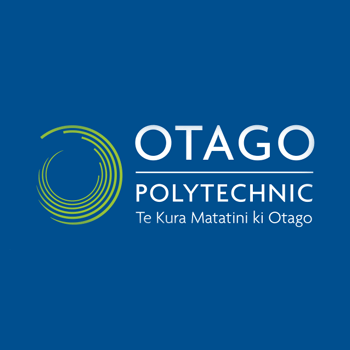
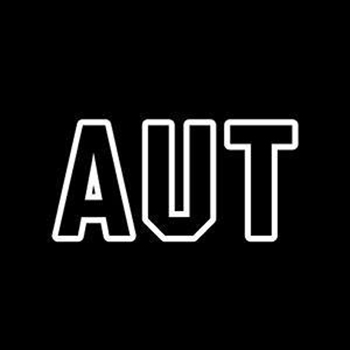
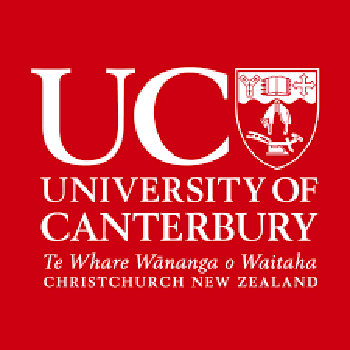
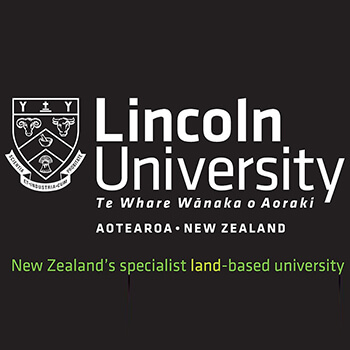
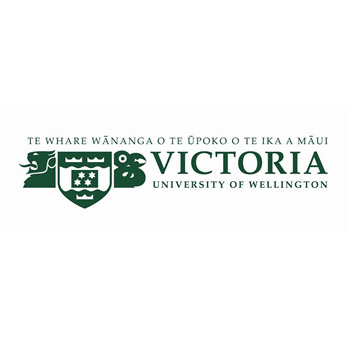
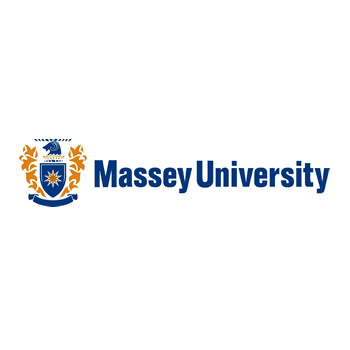
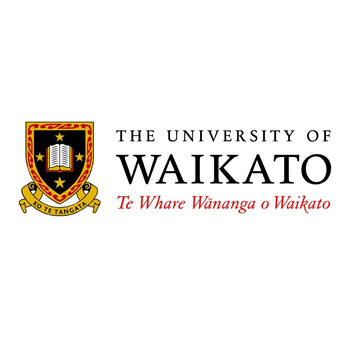
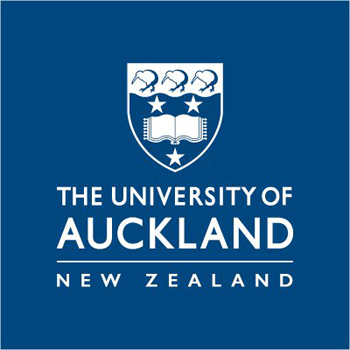










Leave a Reply